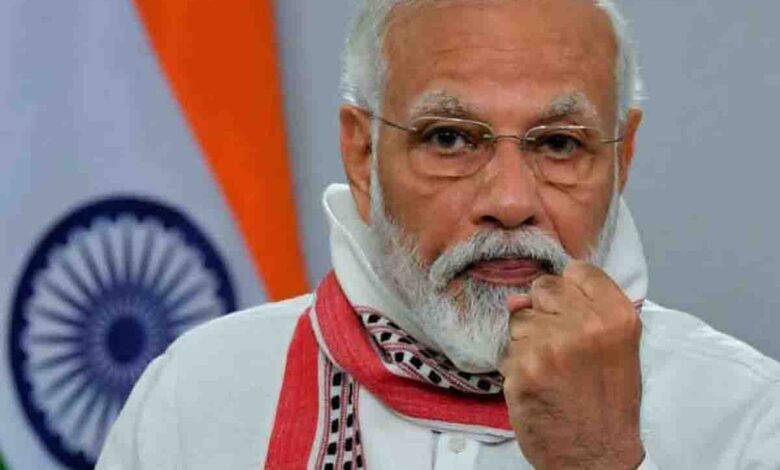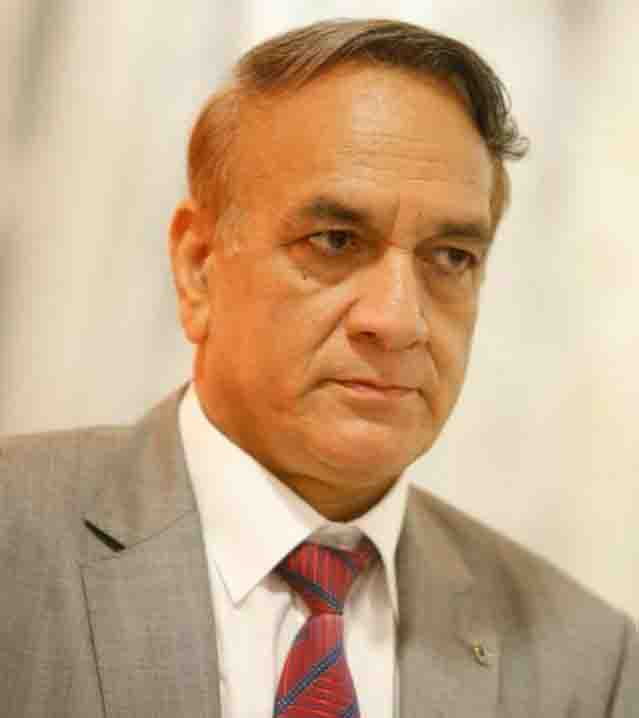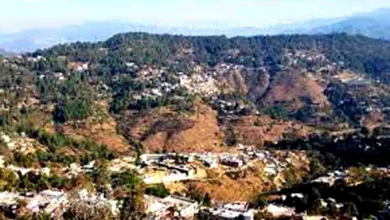Modi era’s time to leapfrog into nation building

GUEST COLUMN
 VK Bahuguna
VK Bahuguna
The mood of the people of the country for the 2024 Lok Sabha elections has become quite clear with the results of recently held Assembly elections in the five States giving the BJP and the Prime Minister a decisive mandate in Madhya Pradesh, Chhattisgarh and Rajasthan. The Prime Minister has also fortified the caste calculations while selecting new generation leaders as Chief Ministers with a one by three approach. The Congress dislodged the Bharat Rashtra Samithi government headed by Chandrasekhar Rao in Telangana. In the North-Eastern State of Mizoram the Zoramthanga led Mizo National Front was defeated by the new regional outfit Zoram Peoples Movement led by Pu Lalduhoma. The trend in the Hindi heartland States indicates the soaring graph of popularity of Prime Minister Narendra Modi and his policies inspite of huge campaigns launched by Congress leaders. Even in Telangana the vote share of BJP soared to 13.9 per cent bagging eight seats and similarly it crossed in Mizoram to more than five per cent with two seats. In Telangana, had the BJP not changed the horse a few months before the State elections as sizeable backward votes were shifted to Congress, the results would have been slightly different.
Let us discuss what was happening in the minds of the people when the opposition and a section of intelligentsia had been vituperatively targeting the Prime Minister and the Central government. The latest five-member bench of the Supreme Court led by Chief Justice Chandrachud in its verdict on December 11 has put a seal of approval on abrogation of Article 370 in Jammu and Kashmir. The apex court had clearly stipulated that this Article issued through Presidential Promulgation was a temporary phenomenon and after Maharaja Hari Singh signed the merger deed with the Indian Union it had no option for retaining its sovereignty as it was complete and final. After the creation of Bangladesh and merger of Sikkim it was the boldest and decisive action taken by any government at the Centre and the Modi government did it on August 5, 2019 at the beginning of its second term. With the abrogation and division of J&K into two Union territories by meeting the demands of the people of Ladakh, it has completed the integration of all states into the Union of Bharat. It can be rated as the initiation of true federalism and the Supreme Court’s decision a vindication of Modi government’s policy to complete the territorial integration of Jammu and Kashmir with rest of the country.
In this regard it would be interesting to note how a few people with the support of the opposition have negatively perceived several decisions of the Modi government and challenged these before the Supreme Court. In most of the cases the court had approved the decision taken by the government. In 2016 the Prime Minister announced banning the Rs 1,000 and Rs 500 notes in order to curtail the flow of black money which apart from others, also hit the terrorist funding in the country. The order was challenged but the Supreme Court upheld the decision. The Rafale deal was made a big issue by the Congress and after detailed scrutiny by the Supreme Court it was found to be a very correct decision. Again the banning of triple Talaq among Muslims was upheld by the Supreme Court in 2017. Similarly the Supreme Court rejected opposition to the Central Vista Project in which the country got a new Parliament house and the validity of Aadhaar card as also the Delhi Government Acts. These decisions are an indication to the political parties that people are fed up with unnecessary blockage of governance by means like challenging every decision in the court and launching abusive campaigns in the media. In fact the time of the courts could have been utilised for speedy disposal of several pending cases of the citizens. The challenges to policies should be discussed in the right forum which is the legislature. The BJP successfully exploited these things like the silly abuse of Sanatan Dharma by the DMK leaders and the silence of leaders of the main opposition party Congress on this.
The current situation thus has lessons for both the ruling party as well as opposition. The opposition must review its policy of uncalled for belligerence on every action of the government because it is having antagonistic results as people perceive that the opposition is feeling like a fish out of water without power and indulging in crying hoarse unnecessarily. Even the correct criticism in such a situation is perceived negatively. The criticism should be constructive and bring ideas and programmes which the government cannot oppose and is forced to accommodate. The opposition parties should cooperate on the issues of national importance as we need to build consensus on many issues of national development like unemployment, farmers’ problems, social cohesion and national security, and overall economic development. In fact the opposition got emboldened after the government was forced to withdraw three well meaning Acts enacted for the welfare of farmers.
For the ruling dispensation under Prime Minister Modi it is not only time to shed any reservation on leapfrogging on its welfare schemes but also to devise ways to fast track progressive programmes needed in national interests in different sectors. One of the most important issues relates to the control of population for which we need a very strict law soon, otherwise all development can go haywire and the country will be entrapped in a vicious cycle of poverty and resource crunch. The Earth’s carrying capacity to shoulder the human population is almost over. The second issue is to find a solution to the infiltration of foreigners, their detection and deportation which is as important as national security. Many internal forces are active in fissiparous and disruptive activities taking advantage of the democratic values and loopholes in our laws. The government on December 12 had argued in the Supreme Court that it is not possible to detect the infiltrators. India perhaps is the only country where a foreigner can easily obtain citizenship and voter card. Not only do they obtain citizenship but also drive the agenda with internal help. A few months ago this writer had raised the issue of an unusual increase in the number of voters in Uttarakhand during the last 10 years being done in a systematic manner, by writing to the Prime Minister and Election Commission as it is threatening the cultural integrity of Uttarakhand and its ecology. The carrying capacity is over and unplanned development is bringing disasters like the Uttarkashi tunnel collapse with one of two such incidents occurring every year. At least the foreigners, after identification, should be disenfranchised and the machinery should be put to monitor the entry in border areas. Third, the country needs to overhaul some of the laws to maintain unity and cohesiveness in the society through legislative and judicial reform. Fourth, being a diverse country we need to bring the provisions of ‘Referendum’ in our constitution so that a decisive mandate on an issue of conflicting views is given by the people as a referendum which is the last goal post in a vibrant democracy. It was discussed in the Constituent Assembly but could not be accepted due to some reasons. Last but not the least, another major decision the Modi government needs to take is to bring a procedure for climate resilient development administration right from block level to the district and sub-regional level and change the focus of governance from law and order centric to resource management centric. In a nutshell, the time is ripe to leapfrog to create the foundation for a peaceful and progressive nation.
(The writer is former director-general in the Ministry of Environment and Forests, Government of India. Views expressed are personal)






